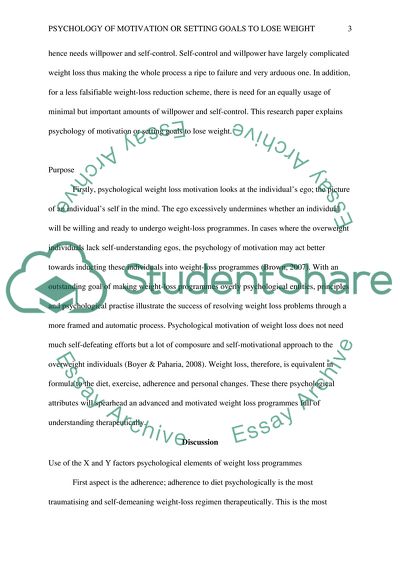Cite this document
(Psychology of Motivation or Setting Goals to Lose Weight Essay Example | Topics and Well Written Essays - 1250 words, n.d.)
Psychology of Motivation or Setting Goals to Lose Weight Essay Example | Topics and Well Written Essays - 1250 words. https://studentshare.org/psychology/1860339-psychology-of-motivation-or-setting-goals-to-lose-weight
Psychology of Motivation or Setting Goals to Lose Weight Essay Example | Topics and Well Written Essays - 1250 words. https://studentshare.org/psychology/1860339-psychology-of-motivation-or-setting-goals-to-lose-weight
(Psychology of Motivation or Setting Goals to Lose Weight Essay Example | Topics and Well Written Essays - 1250 Words)
Psychology of Motivation or Setting Goals to Lose Weight Essay Example | Topics and Well Written Essays - 1250 Words. https://studentshare.org/psychology/1860339-psychology-of-motivation-or-setting-goals-to-lose-weight.
Psychology of Motivation or Setting Goals to Lose Weight Essay Example | Topics and Well Written Essays - 1250 Words. https://studentshare.org/psychology/1860339-psychology-of-motivation-or-setting-goals-to-lose-weight.
“Psychology of Motivation or Setting Goals to Lose Weight Essay Example | Topics and Well Written Essays - 1250 Words”. https://studentshare.org/psychology/1860339-psychology-of-motivation-or-setting-goals-to-lose-weight.


